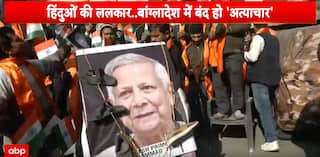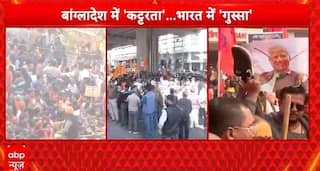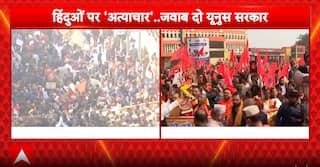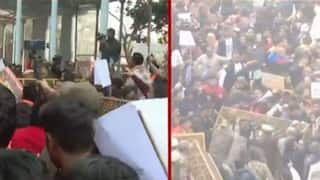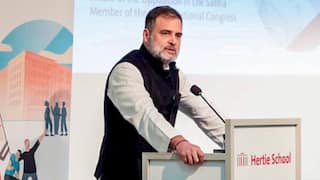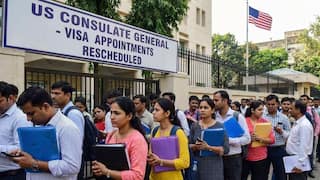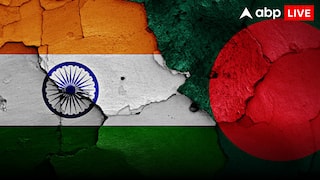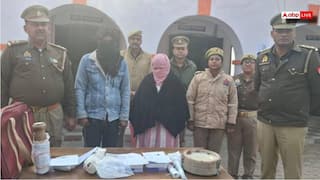In Sudan, Ceasefire Deals Have Become A Joke. They Just Fail To Hold

Five ceasefire agreements signed by the combating Sudanese Armed Forces (SAF), headed by Sudanese President Lt. Gen. Abdel Fattah al-Burhan, and the Sudanese Rapid Support Forces (RSF) of Vice President Mohamed Hamdan “Hemedti‘ Dagalo, both members of the ruling military junta, have failed to hold. The duration of ceasefire in those deals varied from hours to days-long. The latest joke doing the rounds in Sudan is “sounds of ceasefire”, whenever such accords are breached.
A frustrated Joe Biden administration, which heavily invested its diplomatic capital in the ruling junta for transfer of power to civilian authorities, and Saudi Arabia, with its new-found position of peacemaker in the region, teamed up and got another ceasefire agreement signed in Jeddah between the two warring factions. The deal signed on May 20 was scheduled to take effect after 48 hours, that is from 9.45 pm (local time) on Monday (May 22).
But before their respective representative returned, air strikes and heavy mortar shelling started on May 20 evening itself in Khartoum, North Khartoum and Omdurman, the three cities that make the greater capital region. The SAF targeted the moving SRF vehicles in the residential areas on the following day. It has been widely reported that sounds of heavy mortar shell firings were heard in different parts of the country on May 23, the very first day of ceasefire.
SAF and RSF both had received billions of dollars from Saudi Arabia and the UAE — SAF, while fighting the Hutus in north Yemen, and RSF as support of their paramilitary forces to fight for the Southern Transitional Council (STC) in South Yemen, to also fight against the Houthis (relations between the northern Houthi’s and the southerners are bitter). Moreover, the two ‘Generals’ are reported to have amassed huge amount of money from smuggling gold and other precious metals besides heavy “cuts” from Sudan’s oil export.
So, appeasing them to sign ceasefire agreements to ensure urgently needed humanitarian assistances to millions of war victims as well as to secure peace to facilitate transition of power to civilian authorities will certainly not bear any fruit. For, they are adamant to keep their power in the country and, most importantly, each combatant knows that a win will guarantee their supreme rule in Sudan and a defeat will result in death or exile abroad. The stakes are very high. “Strict” Saudi-US joint monitoring of the ceasefire does not matter to them.
What is urgently required to bring peace and stability in Sudan depends on the African Union (AU) Commission for Peace Support Operation Division (PSOD). They are an African Standby force, which can respond to peace support operations authorised by the AU. Heads of the AU member countries are meeting to discuss this issue later this week itself to find a way out of the present imbroglio in Sudan. The final call rests on the African Union Commissioner for Political Affairs, Peace and Security, who will also attend the summit.
Parallel efforts have also been undertaken by the Inter-Governmental Authority on Development (IGAD), the AU-authorised East African regional organisation established to ensure peace, prosperity and regional integration. Their actions will definitely supplement implementing decisions of the AU. However, a line of caution is that only a well coordinated action where member countries do not take sides in the conflict based on their national interests in Sudan. Of course, international logistical supports from the US and the EU as well as financial assistance from the Arab League (AL) countries, Sudan being a member of the AL, will definitely be required. Without these, the AU would not be in a position to take any meaningful action to control the conflicts on Sudan, a humanitarian and security catastrophe that is affecting not only Sudan but its neighbouring countries as well.
The author is a retired IFS officer and former Indian Ambassador and High Commissioner who served extensively in the Gulf, West Asia, and Eastern & Southern African countries.
[Disclaimer: The opinions, beliefs, and views expressed by the various authors and forum participants on this website are personal and do not reflect the opinions, beliefs, and views of ABP News Network Pvt Ltd.]









